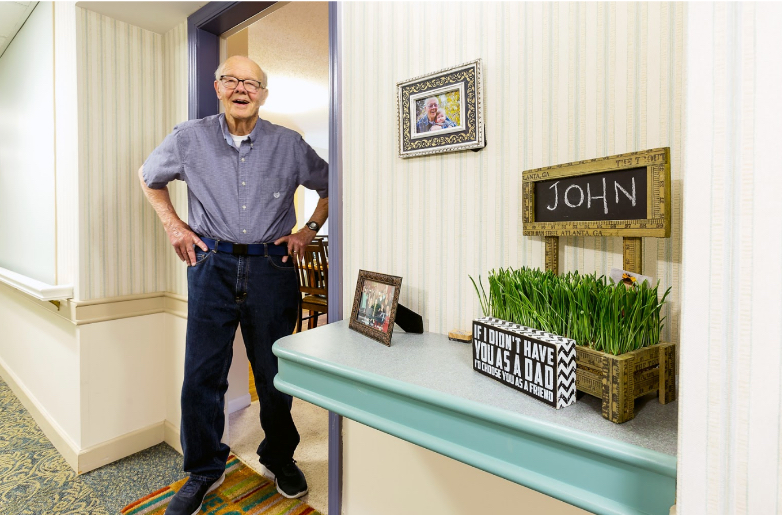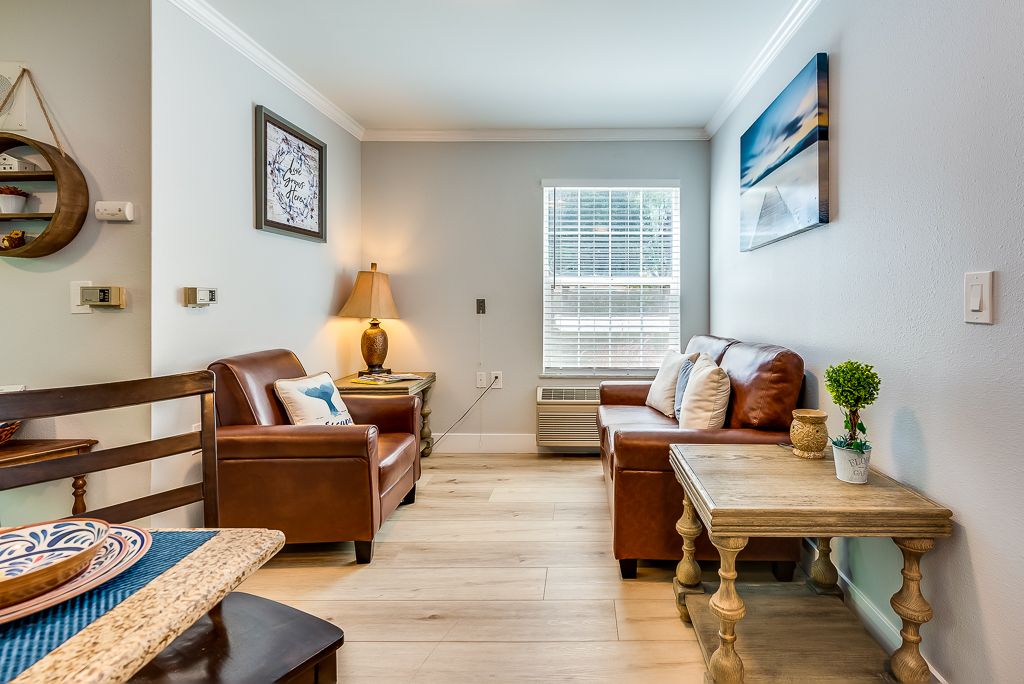Boutique Memory Care Facilities Designed for Tranquility and Dignity
Boutique Memory Care Facilities Designed for Tranquility and Dignity
Blog Article
Everything About Memory Treatment Solutions: Why Small Memory Care Residences Are a Fantastic Choice
Memory treatment solutions play a necessary function in supporting individuals with Alzheimer's and dementia. Tiny memory treatment homes stick out for their tailored technique and intimate setting. With reduced staff-to-resident proportions, these homes promote stronger links and customized care. Residents profit from improved social interactions and a secure setting. As households check out options, understanding the one-of-a-kind advantages of tiny memory care homes becomes essential. What aspects should be thought about when selecting the best home?
Understanding Memory Treatment Solutions
While many might know with general elderly treatment alternatives, understanding memory treatment services is necessary for families encountering the difficulties of cognitive decline. Memory care especially deals with people with problems such as Alzheimer's disease and other kinds of mental deterioration. These services give an organized atmosphere that concentrates on boosting the high quality of life for residents through specialized treatment and support.Memory care facilities are created to guarantee security and protection, often featuring protected settings to stop roaming. Trained personnel participants are offered all the time to assist with day-to-day tasks, medicine administration, and personal treatment. In addition, memory treatment programs frequently include cognitive stimulation activities, customized to engage citizens and promote psychological wellness. Families can benefit from recognizing these services, as they make it possible for educated choices regarding their loved ones' care, guaranteeing that their specific needs and preferences are attended to in a supportive and compassionate way.
The Benefits of Little Memory Treatment Houses
Tiny memory treatment homes use distinctive benefits that can substantially boost the top quality of life for homeowners with cognitive problems. One substantial advantage is the intimate atmosphere, which permits customized interactions among staff and residents. This smaller setting cultivates purposeful connections, decreasing feelings of seclusion and stress and anxiety commonly experienced by individuals with memory issues.Additionally, the lower staff-to-resident proportion in small memory care homes makes it possible for caretakers to provide even more mindful guidance and assistance. This strategy not only boosts security but additionally promotes a sense of protection for the residents.Moreover, little memory care homes can adapt rapidly to the unique demands and preferences of each resident, enabling a more homey environment. Such an environment can urge social interaction and engagement in activities, ultimately enhancing the daily experiences of those coping with cognitive disabilities.
Personalized Treatment Program for Locals
Individualized treatment plans are vital in memory care homes, as they satisfy the distinct demands and preferences of each homeowner. These strategies start with complete assessments performed by competent experts, that review cognitive capabilities, medical history, and individual rate of interests. This customized strategy guarantees that care is not only reliable but likewise considerate of each individual's self-respect and autonomy.Moreover, individualized care strategies are flexible, permitting adjustments as locals' demands develop in time. This versatility cultivates a feeling of safety and security and experience, which is necessary for people living with memory difficulties. Caregivers are trained to carry out these strategies continually, providing support that aligns with the citizens' regimens and preferences.Ultimately, individualized treatment plans enhance the lifestyle for citizens by advertising freedom, wellness, and interaction, making them an essential element of memory care services in tiny memory treatment homes.
Developing a Home-Like Setting
Producing a home-like atmosphere is crucial for promoting comfort and experience in memory care settings, as it considerably affects residents' psychological wellness. Little memory care homes typically prioritize personalized touches, such as cozy color combinations, family images, and acquainted furniture setups, which assist citizens feel more secure. Incorporating components reminiscent of a typical home, like cozy home and common areas, encourages a feeling of belonging.Moreover, using all-natural light and outside rooms can enhance the environment, advertising leisure and tranquility. Employee play a significant function in keeping this environment by engaging with homeowners in a compassionate way, treating them like family. Routine activities, such as cooking or horticulture, can additionally add to a home-like feel, supplying chances for locals to participate in purposeful experiences. Overall, producing a supporting setting supports cognitive feature and psychological security, making it a necessary facet of memory care services.
Improved Social Communication and Area
Boosted social interaction and community are important elements of memory treatment solutions. By cultivating customized social engagement and developing a family-like ambience, these solutions promote significant connections amongst homeowners. Group activities and occasions better urge participation, aiding people really feel a lot more included and sustained.
Individualized Social Engagement
While social communication is essential for total health, several people with memory disabilities typically have a hard time to engage meaningfully with others. Personalized social involvement in memory treatment homes addresses this challenge by creating tailored activities that satisfy residents' unique interests and capacities. By focusing on specific choices, caretakers can cultivate connections that reverberate deeply with everyone. Activities such as art therapy, music sessions, and led discussions promote cognitive excitement and psychological expression. Furthermore, little team setups encourage sociability and enable for more intimate communications, improving sensations of belonging. This strategy not only fights sensations of seclusion but likewise equips residents to keep a feeling have a peek at this website of identity, inevitably adding to improved mental wellness and lifestyle.
Family-like Environment
In a memory treatment setting, cultivating a family-like atmosphere significantly boosts social communication and constructs a feeling of community among homeowners. Smaller memory treatment homes commonly focus on intimate settings, allowing citizens to form closer connections with one another and team member. This nurturing ambience promotes depend on, which is essential for people with memory impairments. Locals are more probable to talk and share experiences, creating a helpful network that relieves feelings of solitude. The knowledge of common areas and regimens adds to a feeling of belonging, further motivating social communication (personalized memory care). In such setups, psychological bonds prosper, leading to enhanced general wellness and a better of life for locals as they navigate their everyday experiences with each other
Team Activities and Events

Safety And Security and Security Features in Little Residences
Lots of little homes designed for memory treatment integrate vital safety and security attributes to ensure the health of citizens. These homes typically utilize secure entry and exit factors to protect against straying, a typical worry amongst individuals with memory impairments. Additionally, security systems and alarm mechanisms boost surveillance, making sure that personnel can promptly respond to any unusual activities.Interior formats are tailored for safety, with minimized hazards such as sharp corners and clutter-free paths. Handrails and non-slip flooring are generally mounted to reduce the danger of drops. Staff participants are learnt emergency methods, guaranteeing they are planned for numerous situations.Moreover, customized treatment plans might consist of assessment of private safety and security needs, offering customized remedies for each citizen. On the whole, these safety and protection features produce a caring setting where homeowners can flourish while keeping their self-respect and self-reliance.
Exactly how to Pick the Right Memory Care Home
Exactly how can families guarantee they pick one of the most appropriate memory treatment home for their enjoyed ones? The choice calls for mindful factor to consider of several elements. Households must evaluate the center's team credentials and training, making certain that caregivers are experienced in handling memory-related conditions. Next off, it's recommended you read important to assess the home's setting, concentrating on safety and security attributes and whether it promotes a feeling of community and belonging. Seeing the center can give understanding into daily activities and the social ambience, which are important for mental stimulation and psychological wellness. Furthermore, families should ask about the care plans supplied, guaranteeing they are tailored visit homepage to specific demands. Thinking about the home's location and availability for household visits can add to a smoother change. By dealing with these facets, households can make an informed choice that prioritizes their liked one's convenience and quality of life in a memory care setting.
Regularly Asked Inquiries
What Certifications Should Personnel Members in Memory Care Residences Have?
Team member in memory treatment homes need to have appropriate qualifications, experience in dementia treatment, strong communication abilities, and compassion. Continuous training in behavioral management and restorative treatments boosts their capability to sustain locals properly.
How Do Memory Treatment Provider Differ From Traditional Assisted Living?
Memory treatment services focus particularly on individuals with memory problems, giving specific assistance and organized environments. On the other hand, typical assisted living supplies general support with everyday tasks, doing not have the tailored method needed for those with cognitive obstacles.
What Sorts of Activities Are Offered in Memory Treatment Houses?
Memory treatment homes normally provide a variety of tasks designed to engage locals. Common alternatives include art treatment, songs sessions, cognitive games, workouts, horticulture, and social occasions, all focused on boosting well-being and cognitive feature.
Can Homeowners Bring Their Own Valuables to Memory Treatment Homes?
Citizens can generally bring their very own items to memory care homes, enabling them to individualize their space - personalized memory care. This technique helps create an acquainted atmosphere, advertising convenience and a sense of identification for the individuals

Just How Are Relative Associated With the Treatment Refine?
Relative play an essential function in the treatment procedure, usually getting involved in decision-making, participating in treatment meetings, and offering emotional support. Their involvement cultivates a collaborative environment, improving the homeowner's overall wellness and high quality of life. While several may be familiar with basic elderly care options, recognizing memory treatment solutions is vital for households facing the challenges of cognitive decrease. These solutions supply a structured environment that focuses on boosting the top quality of life for residents through specialized care and support.Memory care centers are made to assure safety and security, often including protected atmospheres to avoid straying. Customized care strategies are crucial in memory care homes, as they cater to the unique demands and choices of each citizen. Personnel members in memory treatment homes ought to have appropriate accreditations, experience in mental deterioration treatment, strong interaction abilities, and empathy. Memory treatment services concentrate especially on people with memory disabilities, giving specialized support and organized atmospheres.
Report this page